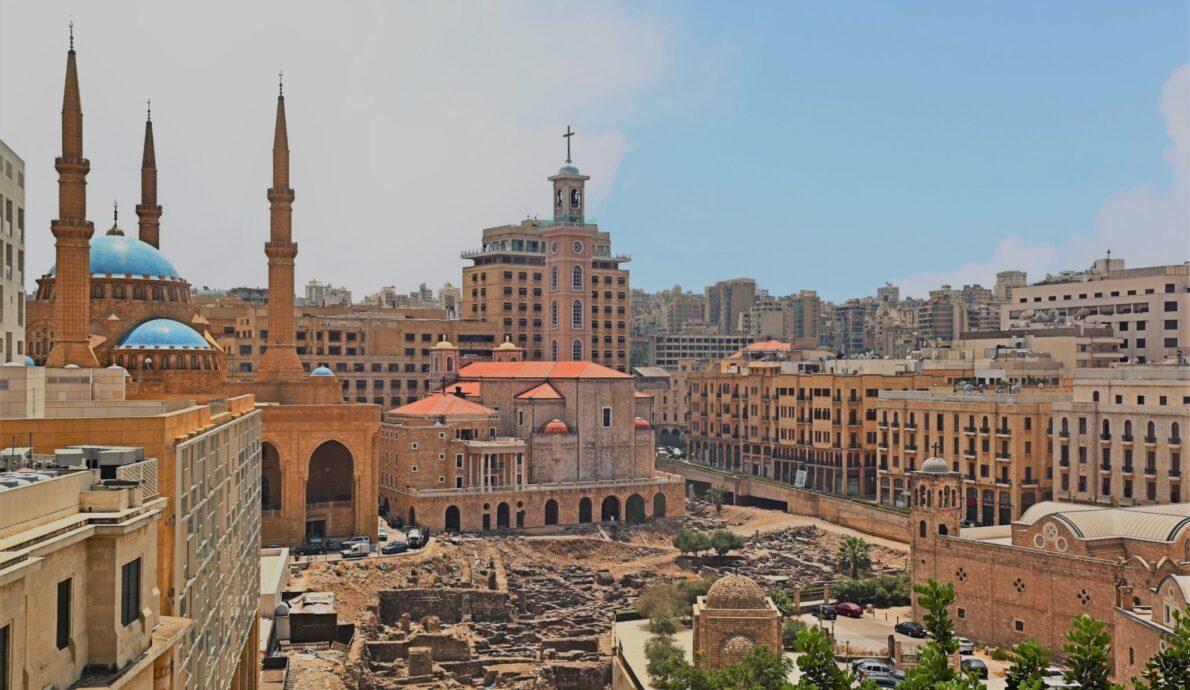This blog is part of a series of articles written by University of Dayton students, published as part of Counterpart’s Next Generation in Thought Leadership initiative. The opinions expressed in this article are the author’s and do not express the views or opinions of Counterpart International.
Lebanon is currently facing one of the country’s worst economic crises in decades. Civilians around the country are taking a stand to hold the government accountable for years of mismanagement, corruption, and poor leadership. Unemployment rates are rising, the value of the Lebanese Pound is decreasing, and the country’s debt-to-GDP ratio currently stands at 150%. Recent changes in the government are also galvanizing civilians to respond. In January 2020, the Lebanese government appointed Hassan Diab as Prime Minister, along with a new cabinet. Both of these appointments are strongly supported by Hezbollah, a Shiite Muslim political and militant group, which causes tensions with non-Shiite religious populations in the country. Lebanon hosts diverse religious groups, including Sunni Muslims, Shia Muslims, Druze, and various Christian denominations; religion plays an important role in the governance structure of the country.
Lebanon’s current economic situation and its weak governance have inspired a number of civil society actors to advocate for a wide range of development issues. These include lack of municipal transparency, lack of political representation, public service mismanagement, lack of monitoring of public spending, and insufficient taxation laws. However, the challenges are not just related to the government. Civil society organizations (CSOs) struggle with capacity gaps which hinder them in properly addressing local issues, catering to the society’s needs, and providing the needed services.
Counterpart International and Management Systems International partnered with local CSOs in Lebanon to help in building their capacity and organizational development through its Building Alliances for Local Advancement, and Investment—Capacity Building (BALADI CAP) project. This 6-year development project, launched in 2013 and funded by USAID, aimed to support CSOs in filling service delivery gaps, advancing rights of vulnerable populations, and advocating for reform.
Our Research
Our research evaluated the extent to which the BALADI CAP promoted good governance and accountability. We looked specifically at the four stages of the Capacity Building Component (CBC) and the Civic Engagement Initiative (CEI) components implemented by Management Systems International, a leading consulting firm with niche expertise in international development and other sectors.
In the first stage of the CBC, 51 partnering CSOs were assessed using the Organizational Capacity Assessment (OCA) tool for their organizational health in the areas of strategic planning, financial systems, monitoring and evaluation (M&E), and human resources. In the second stage, the project developed tailored action plans for specific CSOs by setting performance improvement goals. CSOs capacity is strengthened to enable them to access small grants under the Fixed Amount Award (FAA) contractual agreement(s) aimed to facilitate disbursement of grant funding. In the third stage, the project delivered 132 training workshops tailored uniquely to each CSO eschewing the “one size fits all” approach. The fourth and last stage involves measuring improvements in the CSO’s performance by using the initial OCA assessments as a baseline guide to their progress made in organizational health. This process is repeated annually to measure organizational change and progress.
The CEI component aims to build capacity of non-political and non-religious affiliated CSOs in order to strengthen civic culture and increase democratic and inclusive governance by Lebanese citizens. The component created platforms for informed public debate and the free competition of ideas around priority issues, outside of sectarian and confessional lines. Specifically, it involved three reinforcing activities:
1) Networks and coalitions connecting urban and rural CSOs to address power imbalances and bring national and local stakeholders together;
2) Facilitation of CSO partnerships and capacity building of one or more Intermediary Service Organizations (ISOs), which connect smaller organizations and the people they serve to the local delivery system and mediate between foreign funding agencies and local government agencies or community organizations;
3) Creation of local problem-solving groups around pre-identified critical areas (“issue networks”).
Findings
In our analysis, we found shared and interdependent limitations in both components of the BALADI CAP. First, the CBC and CEI suffered from limited participation and training exhaustion of CSOs due to the time demanded from the participants. CSOs with few to no staff had trouble fully participating in the training and workshops and were disadvantaged as a result. In addition, the FAA contractual agreement(s) were extended prior to the formation of the CSO networks and thus meeting this benchmark for CSOs did not align with nor contribute to the network objectives.
To address this challenge, we recommend a staged approach to building capacity and network building which starts with time and financial management, and minimizes at least initially, the need for participation in trainings and workshops including in relation to coalition building. Sequencing activities differently might have a better impact on the smaller CSOs, catering more to their capacity needs before they are expected to participate in the activity of forming coalitions. To start, priority could be given to work on time management and FAA agreements, beginning with the financial and human resource aspects of individual CSOs and ISOs to develop them to the point where they are strong and sustainable enough to receive funding. As these CSOs develop financial sustainability, grow in staff, and specialize in their units they will be able to adequately define roles as it relates to coalitions and have enough staff to send to training. This would increase performance and ability to form different clusters of CSOs based on shared service and advocacy themes. In relation to network effectiveness, we also noted that it is important to ensure CSOs remain neutral on religious matters so that their work is not hindered because of politicization.
Conducting this research was a new task for us and stretched our capacity beyond our comfort zone. We gained a new perspective on how funding for civil society can create coalitions around important advocacy issues, and how essential it is to give humans a voice how needs can be met. We also now appreciate how much work goes on behind the scenes in civil society in order to make an impact in the community.




